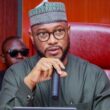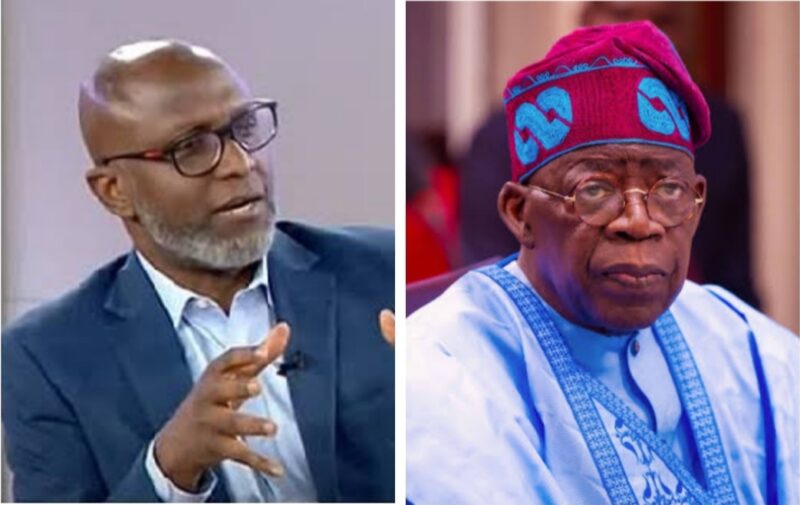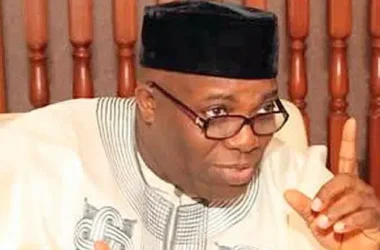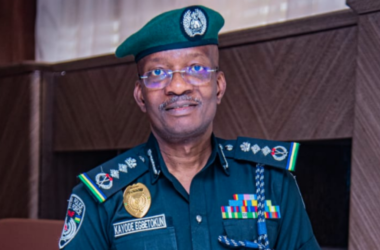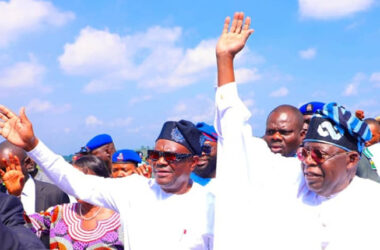Veteran journalist and former presidential aide, Laolu Akande, has called on President Bola Tinubu to demonstrate bold leadership by ensuring the prosecution of those behind the persistent killings in Benue State before advocating for reconciliation efforts.
Akande made this passionate appeal on Sunrise Daily, a Channels Television programme, on Wednesday, while addressing the worsening security crisis in the Middle Belt region.
According to Akande, the ongoing violence in Benue is not isolated or incidental, but a “sustained, consistent onslaught” against the people of the state by “certain intruders” who are bent on displacing communities and occupying their lands.
“The ball is now in the court of President Bola Tinubu — to rise up in courage and boldness. The office of the presidency in Nigeria is powerful enough to get this thing over,” he said.
Akande lamented the “reign of impunity” enabled by the lack of arrests and prosecutions, noting that despite years of bloodshed, no one has been held accountable.
“Well, I mean, two important things are, you know, number one, these killings have been going on, you know, and we don’t see arrest, we don’t hear of arrest, we don’t hear of prosecution, and so there is a reign of impunity. So what is happening?
“Why aren’t people being arrested? Why aren’t people being charged to court? Why don’t we see the trial so that we know that there is impunity? And that goes to the head of the issue. So there is injustice. So because of that injustice, you see that the people that are supposed to be protected by the state are exposed.”
He emphasized that the attacks, which have led to the deaths of nearly a thousand people since February, were “not a joke”, but part of an organized and deliberate campaign.
“In this particular case, Benue, is a sustained attack over the years, persistent. And as a matter of fact, it was seen that those who are behind the attack have an agenda, there is a particular goal that they are seeking, okay? So that is the real thing now.”
Akande criticized the tendency by some political figures to downplay the crisis or explain it away with euphemisms such as “herder-farmer clashes.” He insisted that the main issue is far more sinister.
“What is happening in Benue is that that part of the country has been under a sustained, consistent onslaught for several years, where essentially the people in the state are being killed, their land being taken over by intruders, finished.”
He added that the inability of the state to enforce laws or bring criminals to justice was an indictment on both state and federal authorities, especially given the federal government’s constitutional control over security.
“We have to continue to put the blame where it has to be. Those of them in government, both at the state and federal level, particularly at the federal level, who control security, they have to stop this.”
Akande drew attention to a growing perception — both domestically and internationally — that the people of Benue have been abandoned.
“I heard what Mr Aleva from United Kingdom said that, look, I mean, it’s as if everybody is conspired against the people of Benue. That is the impression, and to the extent that those of us who are not from those regions, we must also raise our voices. Our leaders outside of politics must raise their voices.”
He said it is the duty of every Nigerian — regardless of ethnicity or region — to speak out, adding that failure to do so erodes the country’s humanity.
“We don’t know. We don’t know, and this is why we are human beings. This is why we are not animals. We show concern about the welfare of other people that are around us.”
Drawing from his experience in the previous administration, Akande said expectations were high that former President Muhammadu Buhari, being Fulani, would have acted decisively to stop the killings. While some efforts were made, he admitted they were insufficient.
“We expected that, okay, you know, President Buhari being a Fulani man would be able to talk to his people and bring exactly the kind of authority to end it. He did his own little piece, but was it enough?”
He welcomed recent comments by the Chief of Defence Staff suggesting the possible training of local youth in self-defence, describing it as a “sign of thinking.” However, he maintained that the core solution lies with the presidency.
“That is a man that is thinking. I wish that the president can also rise up and say, look, let us talk. It’s not about the president telling the governor not to convey reconciliation. Yes, there should be reconciliation. But the first thing that has to happen is that let us show that there is justice. Let us enforce the law. Let us protect the people. And then, we will have reconciliation.”
Akande concluded by stating that the president must use the full power of his office to end the killings and deliver justice.
“The president cannot be asking the governor to bring about reconciliation when the president is in control of the instrumental force, and they can’t use those instrumental forces to protect the people.”


